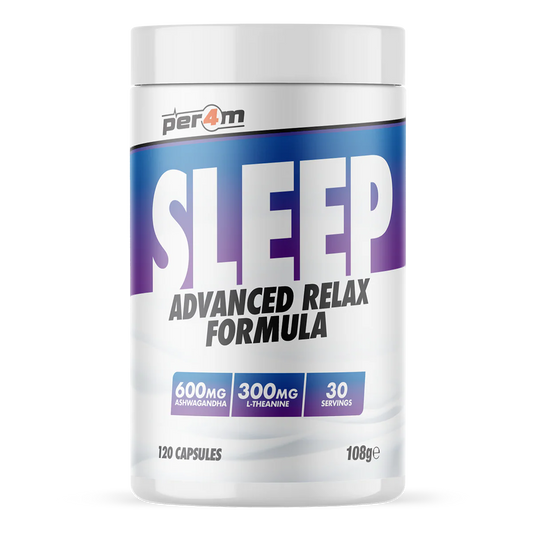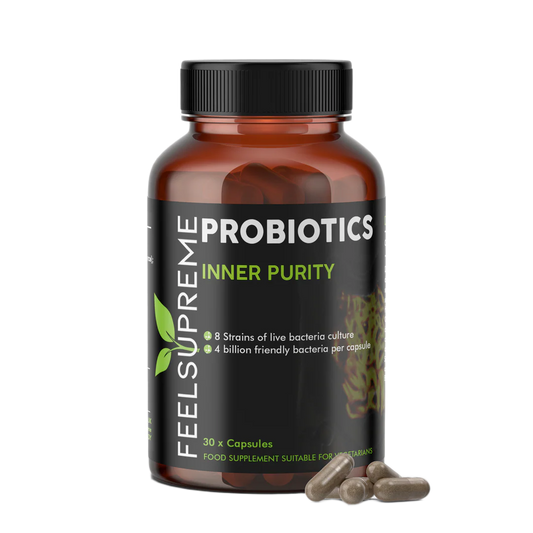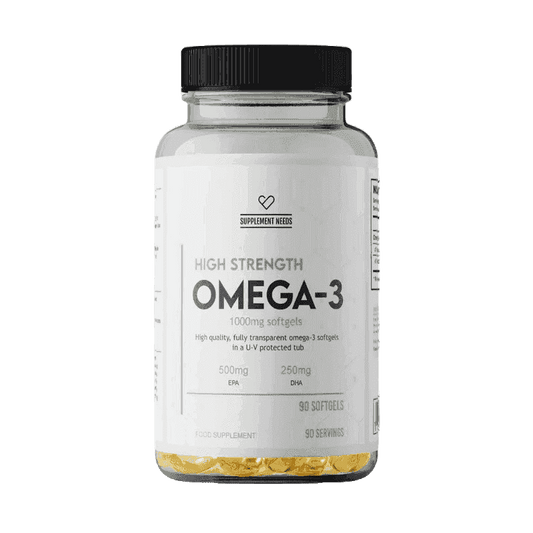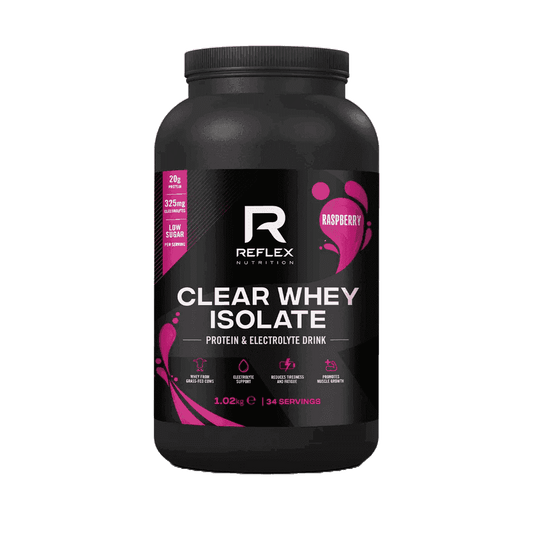Introduction: Why Your Gut Could Be Holding Back Your Gains
When we think about gym performance, most of us zoom straight in on protein shakes, creatine, or pre‑workouts. Gut health rarely enters the chat. Yet your digestive system is the gatekeeper to every calorie, nutrient, and supplement you consume. Without a healthy gut, even the cleanest diet or most advanced supplement stack won’t deliver its full potential.
Over the past few years, the fitness world has started paying more attention to the microbiome — the trillions of bacteria living in your gut. And for good reason: research now links gut health not only to digestion, but also to energy levels, recovery, inflammation, and even muscle growth. The question is: can gut health supplements actually make a measurable difference in the gym, or is this just another wellness fad?
1) Does Gut Health Really Matter?
The truth is, your gut health is a silent driver of gym progress. When your digestive system is balanced, you absorb protein more effectively, regulate energy better, and recover faster between sessions. But when your gut is out of sync, the effects ripple through your whole training cycle.
Consider this: roughly 70% of your immune system is based in the gut. Poor gut health can mean more inflammation, slower repair of muscle fibres, and that nagging fatigue that stops you from hitting personal bests. It’s also tied to serotonin production, which influences your mood, motivation, and mental focus during workouts.
A practical example: someone eating a high‑protein diet might still struggle to build lean mass if their gut isn’t processing and absorbing amino acids efficiently. This is where supplements like digestive enzyme blends can help. They work by breaking down food more effectively, ensuring that the protein you’re paying for and prepping doesn’t go to waste. Pair that with a high‑quality whey isolate, and you’ve got the kind of synergy that keeps progress steady instead of stalling.

2) Does Good Gut Health Help Build Muscle?
Muscle doesn’t just come from lifting heavy — it comes from recovery, and recovery relies on nutrient absorption. If your gut isn’t operating smoothly, you could be leaving growth on the table without even realising it.
When your digestive system is balanced, nutrients move efficiently into the bloodstream, fuelling muscle repair and growth. Good gut health reduces systemic inflammation, meaning your body spends more time building muscle and less time battling digestive stress. Hormonal balance also comes into play; an optimised gut supports better testosterone and growth hormone levels, both crucial for muscle development.
Picture two athletes on identical training and nutrition programmes. One has a strong gut microbiome, the other doesn’t. Over weeks and months, the first athlete recovers faster, trains harder, and builds more lean mass — even though their macros are identical. That’s the unseen advantage of gut health.
For lifters looking to push progress, pairing a probiotic supplement with a clear whey isolate is an intelligent move. The whey ensures a fast, clean protein hit without digestive heaviness, while the probiotic helps the body get the maximum benefit from every scoop.
That’s why many gym‑goers turn to Reflex Clear Whey Isolate. Its fast‑absorbing formula delivers the protein your muscles need without the heaviness or bloating that often comes with regular shakes, making it a smart choice for supporting both gut comfort and gym performance.
3) Do Gut Health Supplements Really Work?
It’s easy to be sceptical, especially given how crowded the supplement market has become. But when you strip away the hype and look at the evidence, gut health supplements have a clear role to play for gym‑goers.
Probiotics are the most talked‑about option — live bacteria strains that support a healthier microbiome. They can reduce bloating, improve digestion, and lower inflammation, all of which translate into better training sessions. Digestive enzymes are another tool, particularly for people eating high‑protein diets. These enzymes break down complex foods so your body can use nutrients more effectively.
Of course, these aren’t magic bullets. You won’t suddenly add five kilos to your squat just because you swallowed a probiotic capsule. But when combined with a balanced diet, a quality protein powder, and essentials like creatine and omega‑3, gut health supplements can tilt the odds in your favour — less discomfort, more energy, and better recovery.
This isn’t about replacing the basics; it’s about making sure your body gets the full value from them.
4) Does Going to the Gym Improve Gut Health?
Interestingly, yes — to a point. Exercise, particularly regular aerobic activity, increases the diversity of gut bacteria, which is a strong marker of good gut health. It also helps regulate bowel movements and reduces inflammation throughout the body. For many, starting a consistent gym routine is enough to notice an improvement in digestion and energy.
But here’s the caveat: overtraining, chronic stress, or poor recovery habits can tip the scales the other way. Intense workouts without adequate rest can actually disrupt the gut, leading to bloating, digestive upset, and reduced nutrient absorption. That’s why pairing your training with a supplement strategy designed to support digestion makes sense. Think of it as a one‑two punch: training improves gut health, and gut health supplements ensure the benefits are maximised.
To complement the benefits of regular training, Per4m Sleep – 120 Caps can play a crucial role. Quality sleep is where the gut restores balance and muscles repair, and this supplement helps support deeper, more restorative rest so your body can recover fully from hard gym sessions.
5) Does Gut Health Affect Athletic Performance?
This is where it all ties together. Your gut doesn’t just affect your digestion — it shapes how well you perform in the gym. When it’s healthy, you’ve got steady energy, sharper focus, and quicker recovery. When it’s not, you feel sluggish, distracted, and sore for longer.
The gut–brain axis explains part of this connection. The gut produces neurotransmitters like serotonin, which affect motivation and mental clarity. A healthy gut also helps regulate blood sugar, preventing the energy crashes that kill workout intensity. Add in better protein absorption and reduced inflammation, and you start to see why gut health is a hidden cornerstone of gym performance.
Athletes and everyday gym‑goers alike are beginning to recognise this. It’s no longer just about macros and muscle splits — it’s about building the internal foundation that makes all that hard work pay off.
📌 That’s the end of Part 1!
We’ve laid the foundation: why gut health matters, how it links to muscle growth and recovery, and the real science behind supplements.
🔜 In Part 2, we’ll dive into:
-
Is strength training good for gut health?
-
Can lack of exercise affect gut health?
-
Do probiotics improve athletic performance?
-
Do you really need probiotic supplements?
-
How long does it take for probiotics to work?
-
FAQ’s
Do Gut Health Supplements Really Make a Difference in the Gym?

6) Is Strength Training Good for Gut Health?
Strength training, done correctly, can be a boon for your gut. Lifting weights stimulates blood flow to the digestive system and reduces stress hormones that damage the gut lining. However, intensity matters. Extreme programs with little recovery can backfire, spiking cortisol and straining your microbiome.
This is why supplements that support recovery are key. For example, pairing creatine with omega‑3 not only enhances training performance but also reduces systemic stress, giving your gut the recovery window it needs. Think of strength training as building the engine, and gut support supplements as ensuring the fuel lines stay clear.
7) Can Lack of Exercise Affect Gut Health?
A surprising truth: inactivity can be just as harmful to your gut as poor diet. Research shows sedentary lifestyles reduce the diversity of gut bacteria, making digestion less efficient and raising inflammation levels. Without regular movement, the microbiome becomes less resilient, leading to sluggish digestion, bloating, and even weaker immune responses.
The fix doesn’t require running marathons. Consistent strength training and moderate cardio are enough to stimulate beneficial gut bacteria growth. Pair that with a quality probiotic, and you create an environment where nutrients are processed efficiently and energy levels stay steady — crucial for gym performance.
8) Do Probiotics Improve Athletic Performance?
Probiotics aren’t just about digestion — they can directly impact performance. Studies link probiotics to reduced exercise‑induced inflammation, improved nutrient absorption, and even fewer colds in athletes (a big win during heavy training cycles).
By improving the gut‑brain axis, probiotics may also enhance focus and reduce stress, translating into better training intensity. When combined with easily digestible protein, like clear whey isolate, probiotics can give gym‑goers an edge in both recovery and performance.
The takeaway: probiotics won’t replace creatine or protein, but they can amplify their benefits by ensuring your body makes the most of every nutrient.
9) Do I Really Need Probiotic Supplements?
If your diet is rich in fibre, fermented foods, and diverse fruit and veg, you might already be supporting your gut. But realistically, many gym‑goers eat repetitive, protein‑heavy diets that can strain digestion.
Probiotic supplements are a practical way to maintain microbial balance without overhauling your entire meal plan. They’re especially useful for those with high protein intake, irregular eating patterns, or frequent stress — all common in gym life.
Combined with digestive enzymes, probiotics ensure you absorb more of the protein, creatine, and micronutrients you’re already investing in. In other words, they don’t just add value — they protect the value of everything else you take.

10) How Long Does It Take for Probiotics to Work?
Patience is key. Unlike creatine, where results can be felt within a week, probiotics usually take several weeks to make a noticeable impact. Most users report better digestion, less bloating, and more consistent energy within 3–4 weeks.
Long‑term use delivers even greater benefits: stronger immunity, more efficient nutrient absorption, and reduced inflammation. If you’re serious about gym progress, consistency with probiotics is as important as consistency with training. Think of them as a long‑term investment in your performance engine.
🧠 FAQ: Gut Health & Gym Performance
1. Can probiotics help with gym recovery?
Yes — they reduce inflammation and support nutrient absorption, leading to faster recovery.
2. Do gut health supplements improve energy in workouts?
They can. By improving digestion and nutrient uptake, probiotics and enzymes stabilise energy levels during training.
3. What’s the link between gut health and performance?
Gut health affects nutrient absorption, energy, and even focus via the gut‑brain axis.
4. Best gut health supplements for weightlifters?
A combination of probiotics, digestive enzymes, omega‑3, and clear whey isolate.
5. Do digestive supplements reduce bloating after workouts?
Yes — especially enzyme blends, which help break down high‑protein meals that can otherwise cause discomfort.
6. Are probiotics necessary if I already eat healthy?
They may still help. Even with a balanced diet, modern lifestyles and heavy training can disrupt gut balance.
Conclusion: The Gut–Gym Connection Is Real
Gut health supplements aren’t gimmicks; they’re a foundation that helps you get more out of every set, scoop, and rep. From energy stability to faster recovery, the benefits of supporting your microbiome show up where you want them most: in the gym.
If you’re serious about training, don’t overlook your gut. It’s not just about what you eat — it’s about what your body can use. The right supplements ensure nothing goes to waste.





